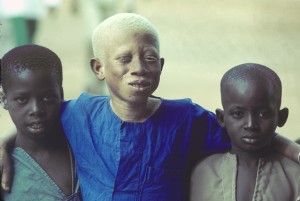 From: Tubob: Two Years in West Africa with the Peace Corps
From: Tubob: Two Years in West Africa with the Peace Corps
Each week, the Basse Health Centre where I worked in The Gambia conducted an antenatal (prenatal) clinic and a separate well baby clinic for children five years and younger. Sister Roberts suggested that I attend these clinics where record keeping was vital. I agreed, not knowing that I would be involved in a local superstition.
The next day, Tuesday, I helped in the antenatal clinic. The clinic, a separate building in the hospital compound, had rows of perhaps fifty chairs on one side and a couple of tables at the other. Outside, the overflow waited in a covered area. Many of these pregnant women had come from miles away, most walking, some arriving in bush taxis. or donkey-pulled carts. Many carried babies on their backs.
Women and their children stood in line, which, at first, was a phenomenon to me. My African experience so far had been crowds of pushing people, at banks, the post office, the ferries and bus stops. But here the woman formed a queue, as instructed, and stayed in line with their well-behaved children in tow.
At one table, the auxiliary nurses reviewed the woman’s personal health record, took blood pressure, and pulled down the lower eyelid to look for pale coloration, a sign of anemia. Many Gambian women were anemic due to frequent childbearing. The woman then progressed to the next table to see the nurse mid-wife while I recorded the woman’s name and entered information in a ledger. All during this procedure, I noticed women shielding their eyes from me. Some actually cupped their hands around their eyes to avoid looking at me.
I asked the nurse mid-wife why the pregnant women wouldn’t look at me. “Oh, Mariama, it’s a stupid superstition that if they see a white person they’ll have an albino baby.”
I had seen African albinos and it is an unfortunate condition. Their skin is white and very sensitive to the sun. An albino’s eyes are affected with extreme light sensitivity. Having an albino baby would be something to fear. It bothered me that the women felt threatened by my presence.
After clinic that first day, I told Sister Roberts about my concern. She also scoffed at the superstition.
“But still,” I countered, “I don’t want to give them that worry.”
We agreed that I wouldn’t attend the antenatal clinics, but she definitely wanted me to attend the well baby clinic on Fridays. It was a good compromise. I felt odd enough without having to bear the burden of having women think I would be the cause of their having an albino baby.


Pingback: Mary E. Trimble: An Object of Superstition | Camano Community
I remember this scene from the book well. Instead of being upset or arguing about the superstition, you made a compromise that helped the emotional health of those pregnant women. You were still able to offer your help to the children and their mothers.
Yes, I am glad I handled it this way. And…if I hadn’t…wouldn’t it have been awful if one of those women had given birth to an albino? We saw a few while we were there. Those people are really at a disadvantage in that climate.
Interesting story, Mary. Glad you were able to make a compromise, and that things worked out so you wouldn’t have had to worry and the Gambian women didn’t have to worry, either.
Thank you, Alice. I’ve always been glad I followed my instinct on that decision.
Sometimes kindness trumps science.
I agree. Sometimes going with the flow helps us ease over the rough spots.